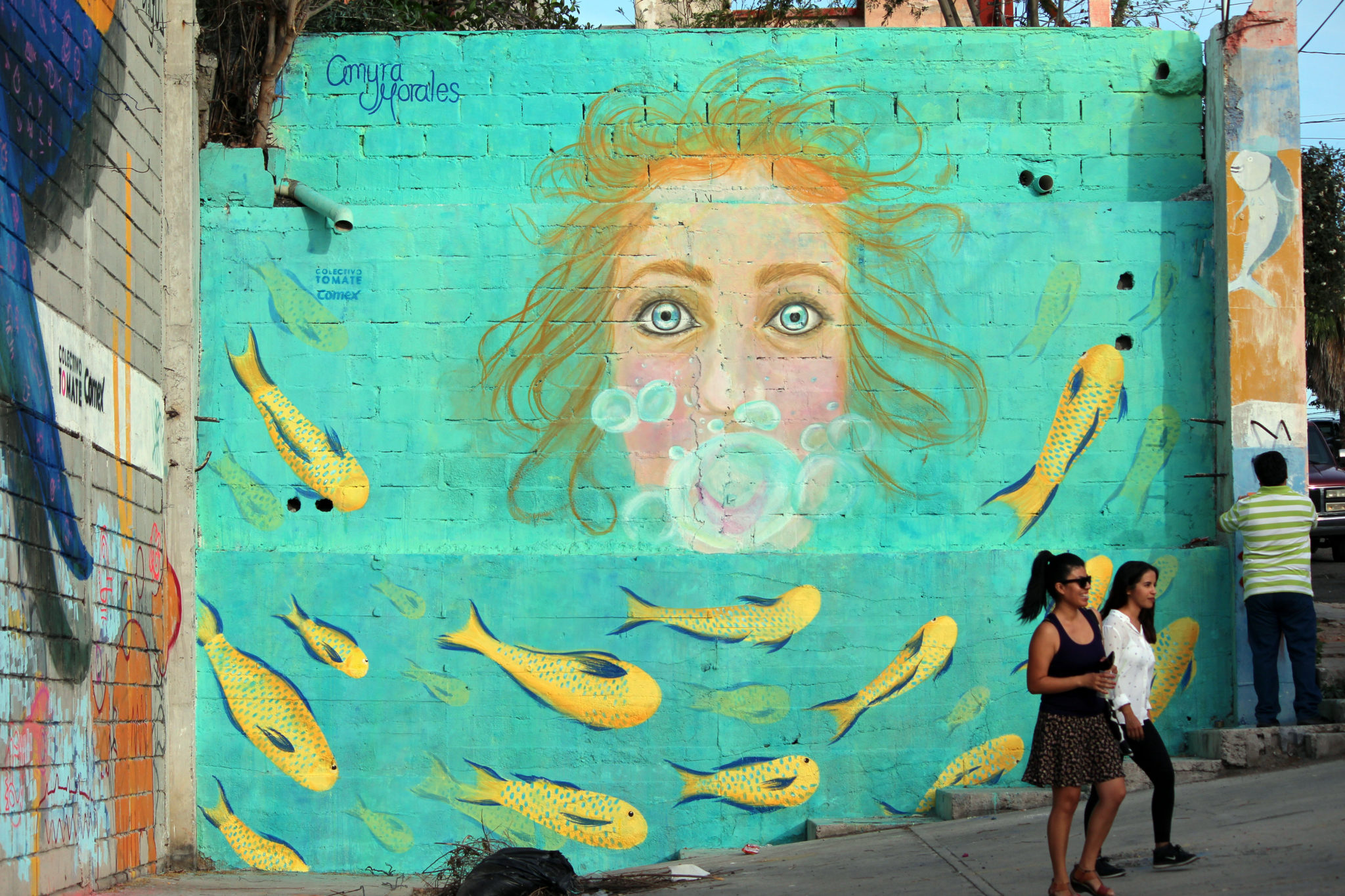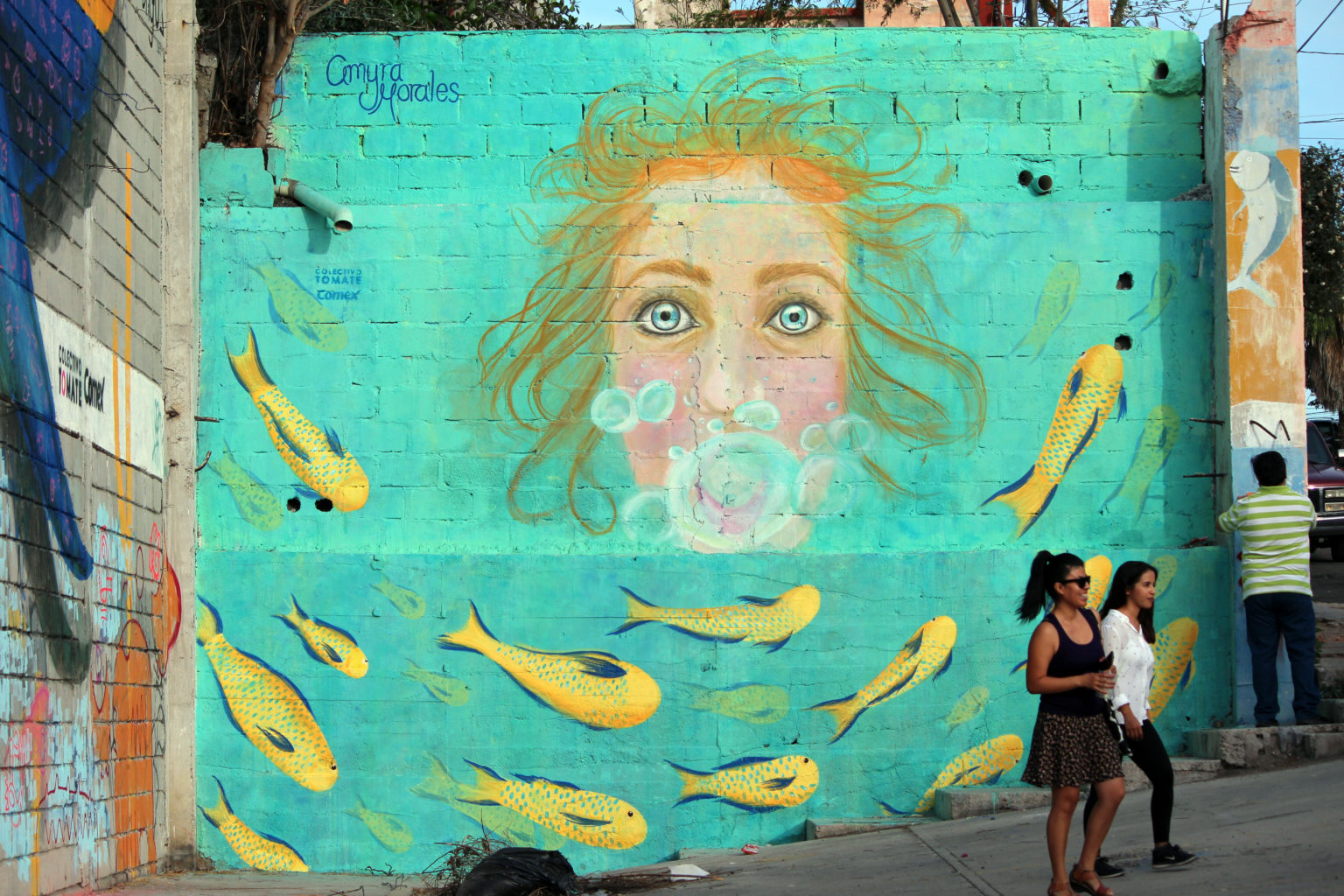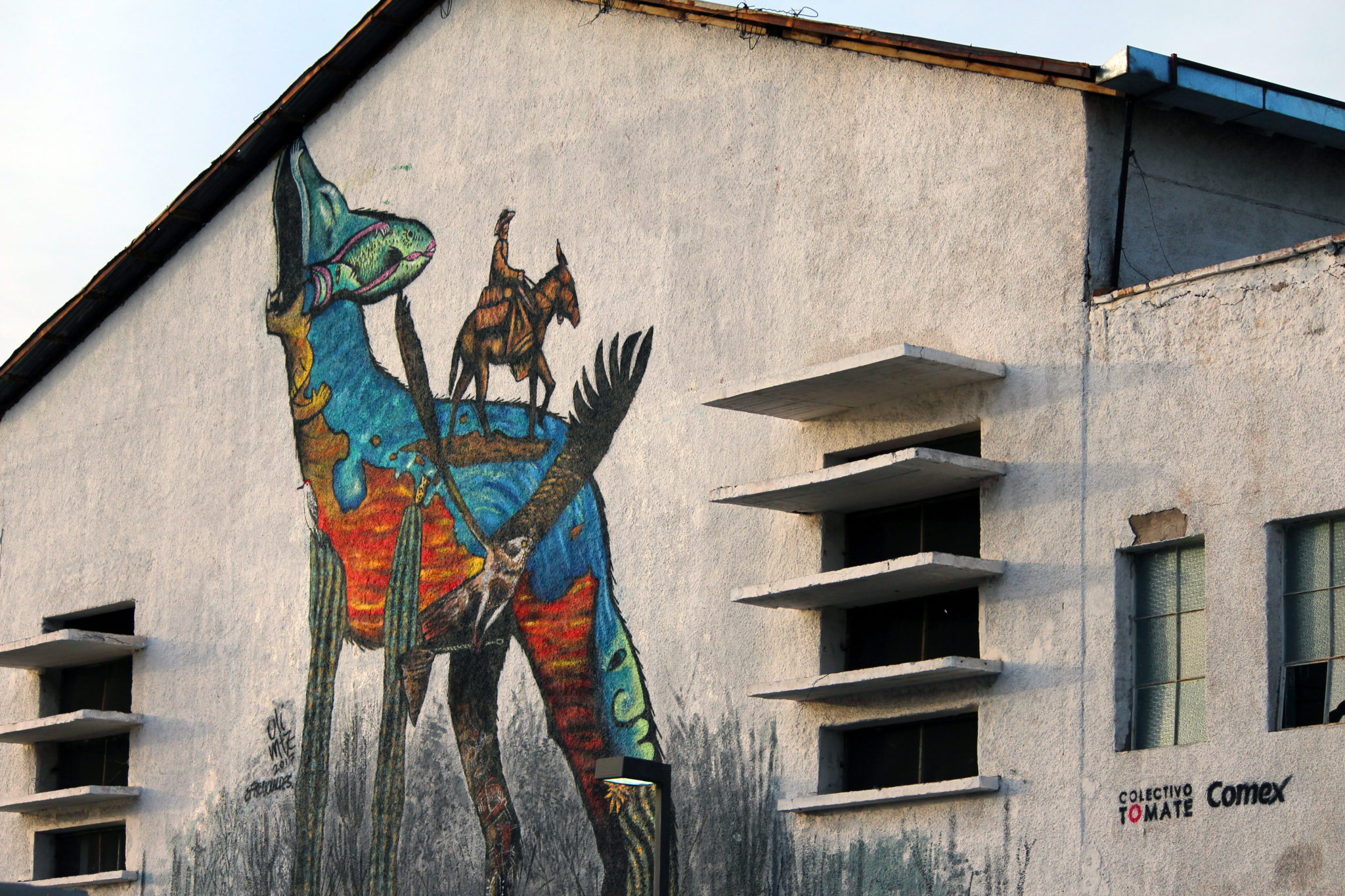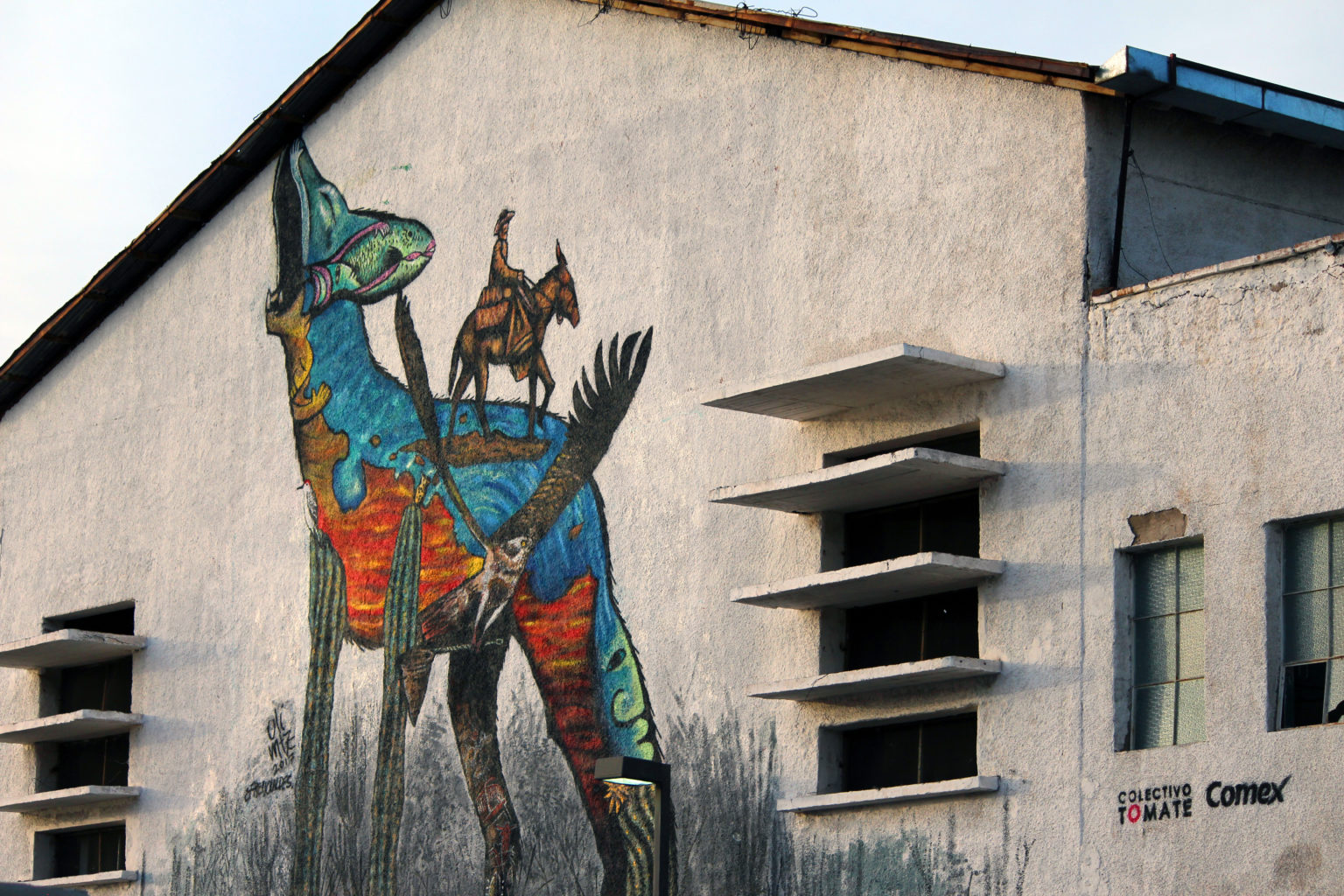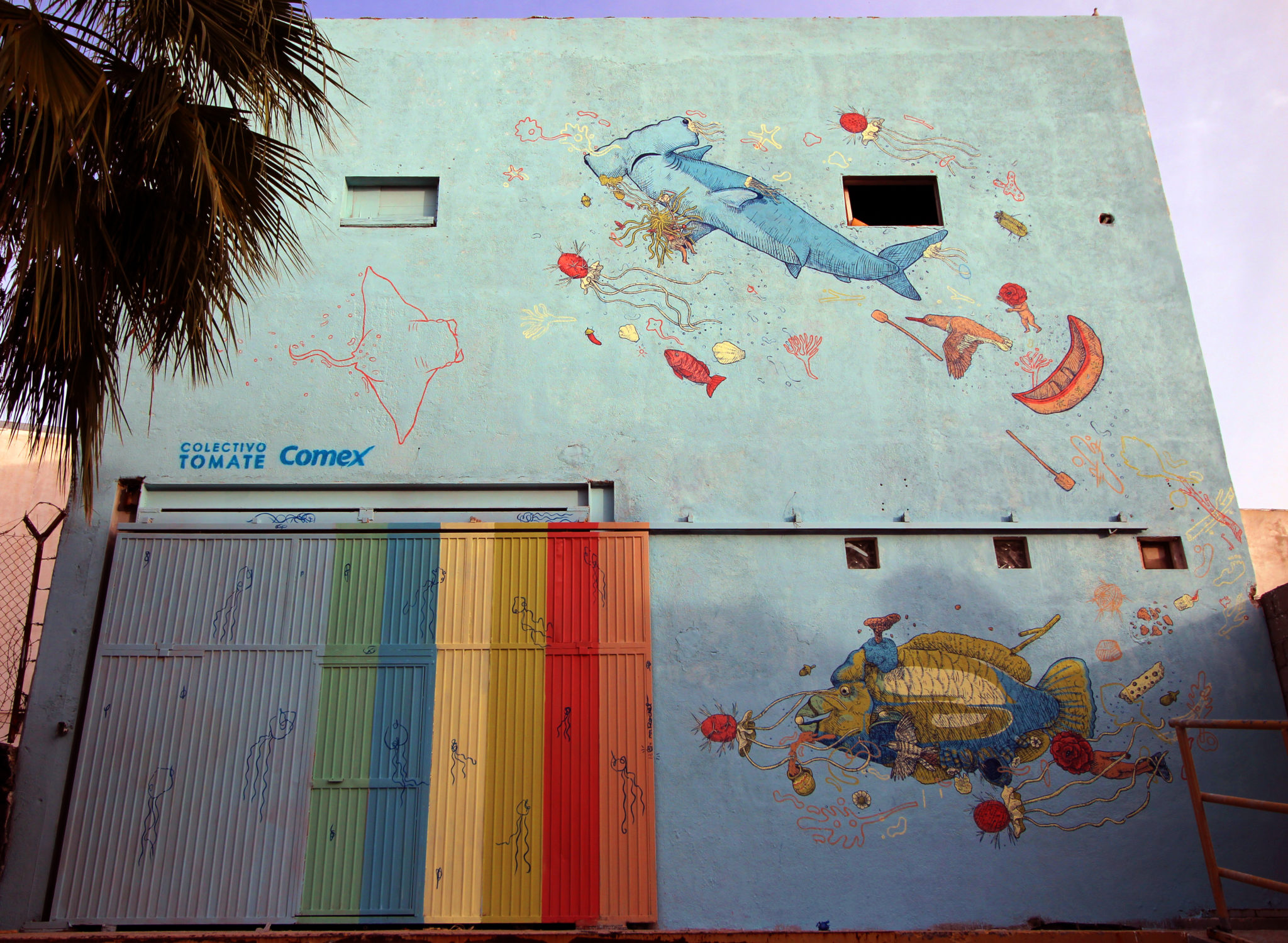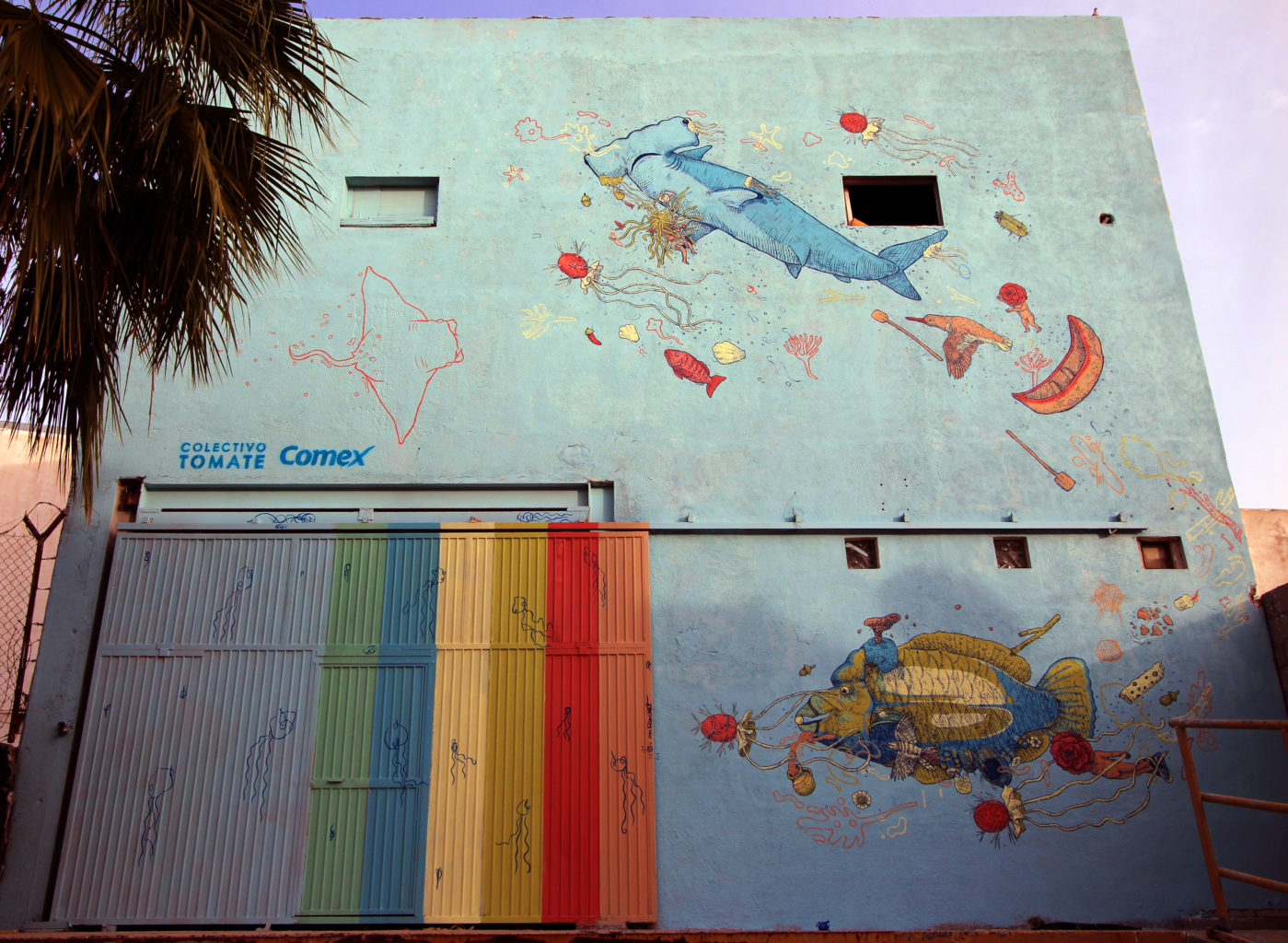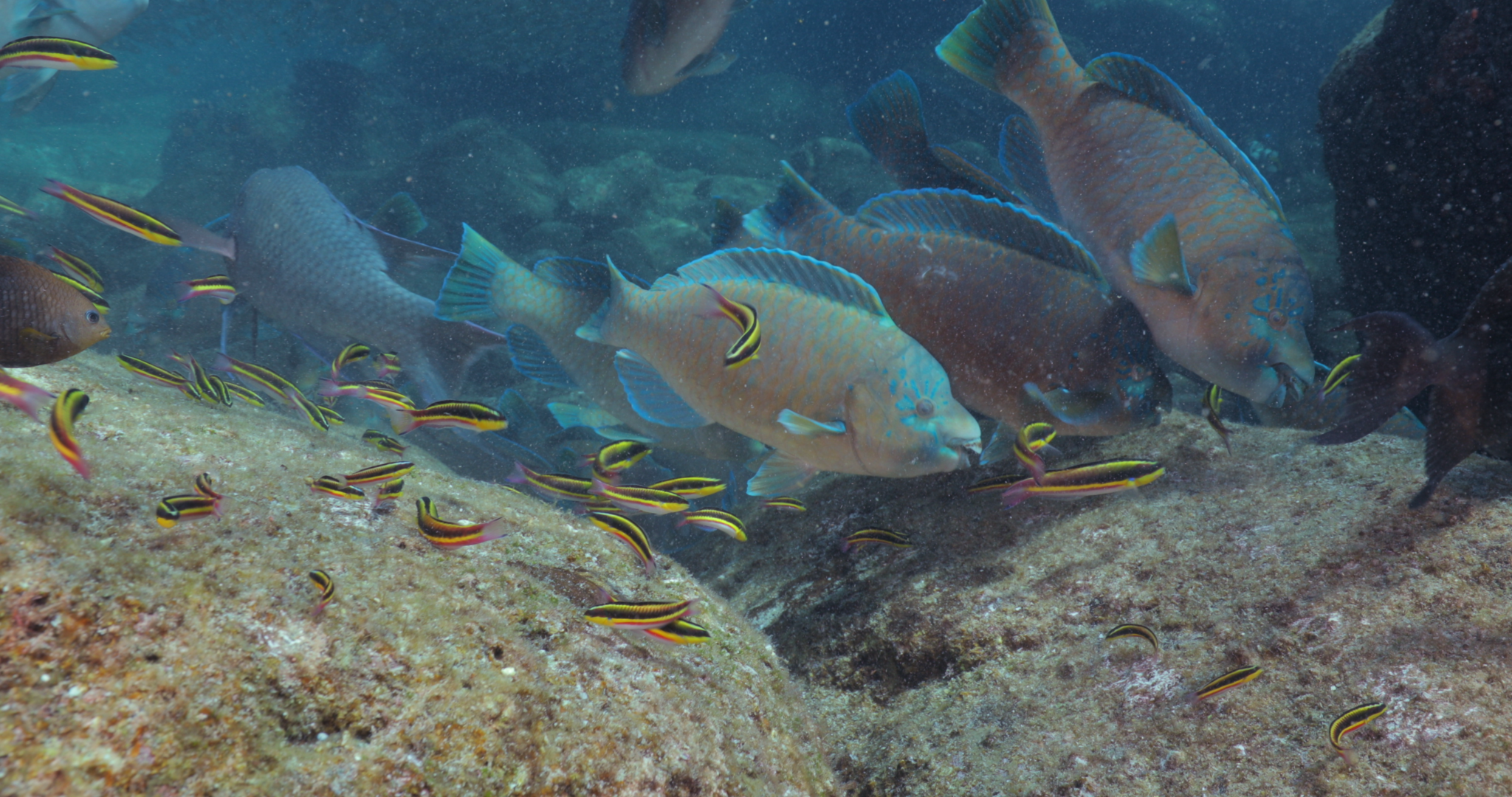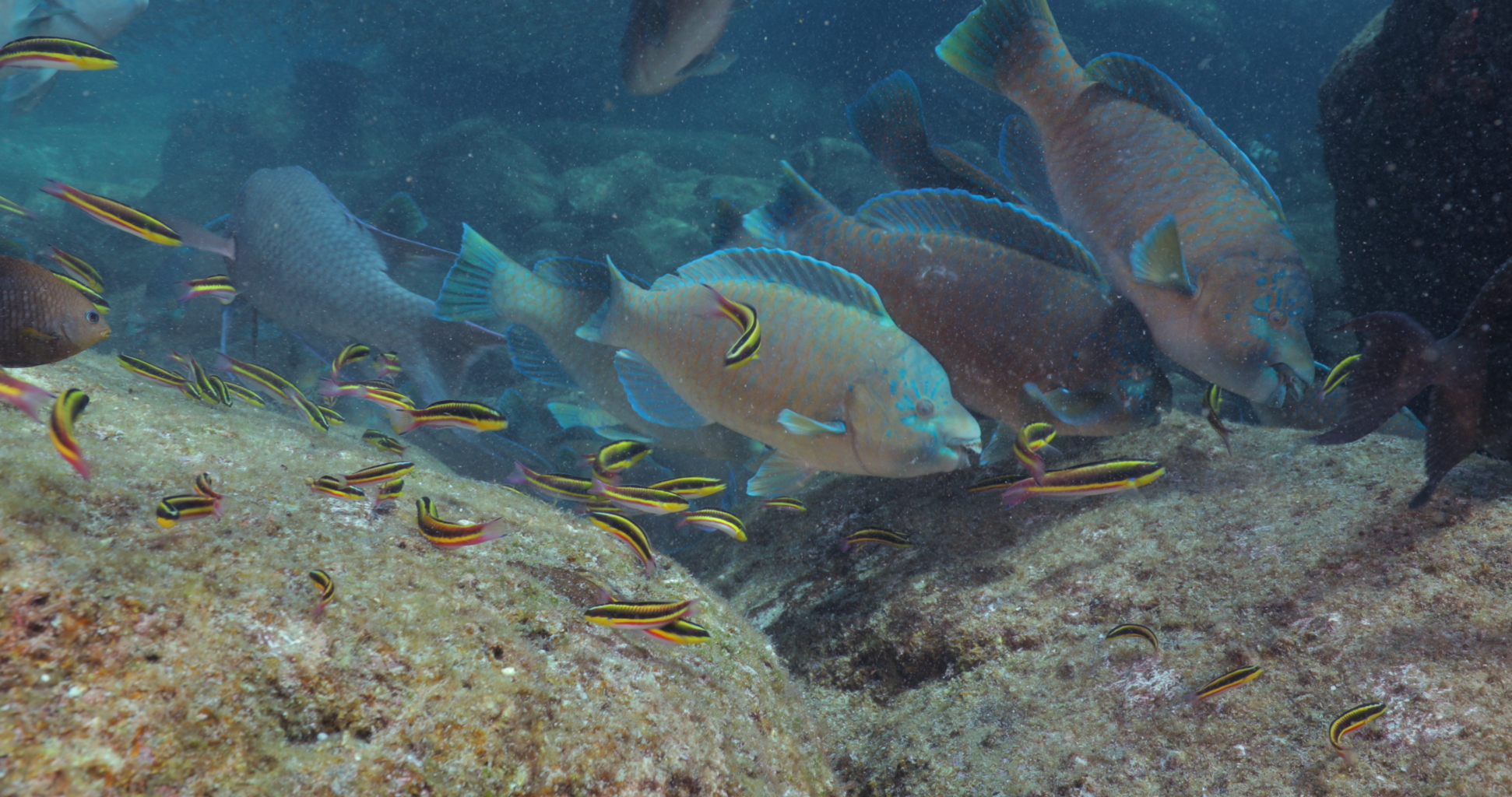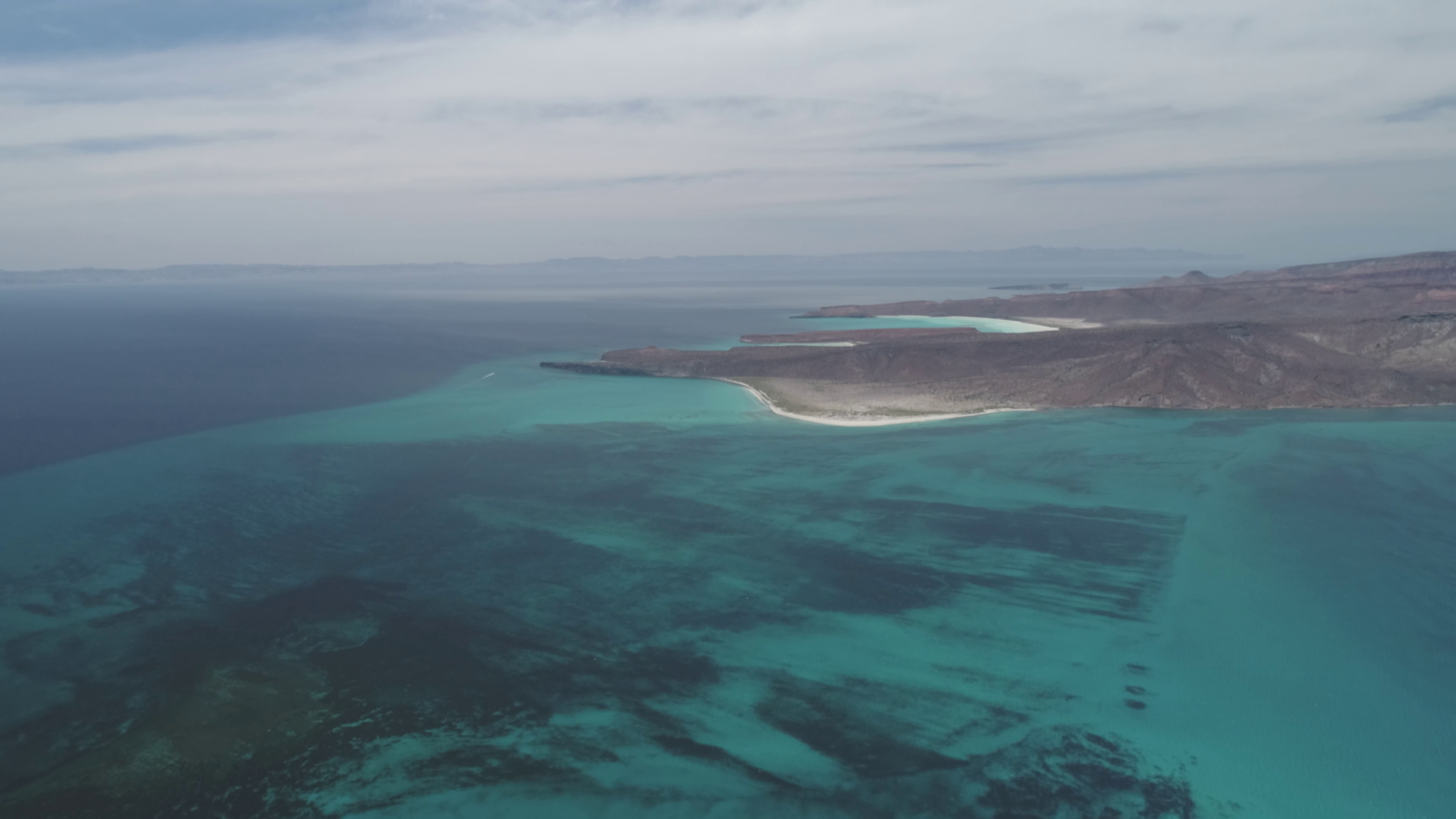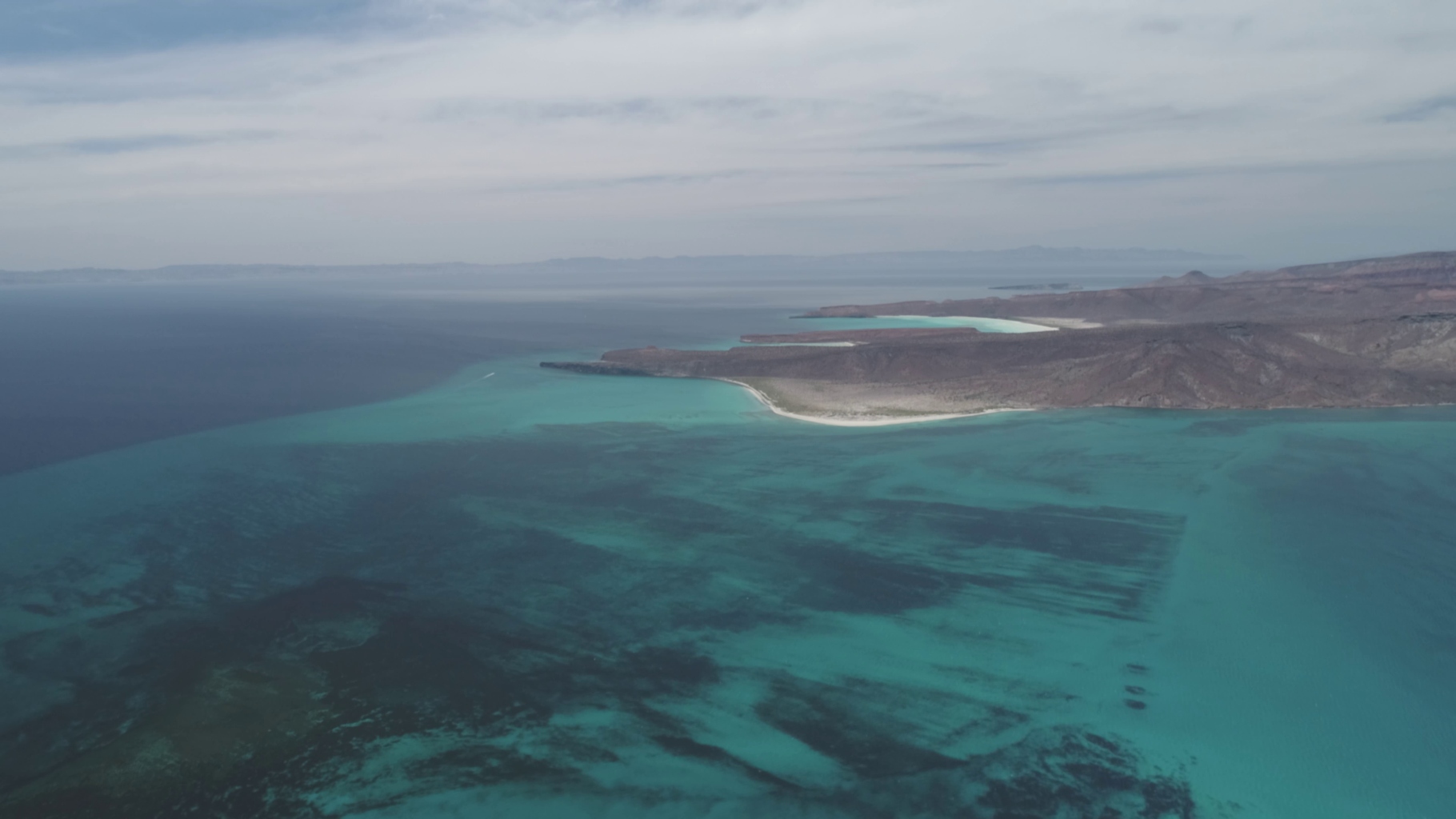Parrotfish are crucial to healthy coral reefs. This ambitious campaign is reaching out to fishermen, food markets, students, restaurants, tourist businesses, and others to promote support for a ban on taking parrotfish.
Jacques Cousteau once admiringly called the Gulf of California the “aquarium of the world.” His description captures the abundance and diversity of marine life in the gulf but doesn’t touch on the dangers—especially overfishing—that threaten it.
The Espíritu Santo Archipelago, near La Paz, is on the border of temperate and tropical zones and is so rich in rare plants and animals that UNESCO designated it as a Biosphere Reserve. Around Espíritu Santo Island, mangrove forests and coral reefs provide habitat for birds, fish, and hawksbill sea turtles. Dolphins, whales, and sharks are common. A set of islets hosts a thriving sea lion colony. Visitors to popular Espíritu Santo Archipelago National Park take boats out to the uninhabited islands, where they snorkel, dive, kayak, or just enjoy the white sand beaches.
There is intensive fishing for parrotfish, which are in high demand at local markets and are prized by small-scale fishers. Populations of the four parrotfish species in the gulf have declined, spelling trouble for the coral reefs. Parrotfish eat algae that would otherwise smother the coral, so a robust population of parrotfish is crucial for a thriving reef. For the population to recover, scientists have recommended that fishing be halted for 9.5 years.
But because fishing continues, this project aims to change attitudes about catching and eating parrotfish. It is a grassroots pride campaign, similar to our project in Colombia that succeeded in getting a ban on taking parrotfish around Providencia and San Andrés Islands. Ultimately, the goal is to protect parrotfishes in the entire Gulf of California.
Our partners have made presentations to 3,600 students. They have also gotten 95 restaurants and three big supermarkets to stop selling parrotfish. Now they will create videos and infographics to generate support from fishermen, fish buyers, tour guides, students, and the public.


